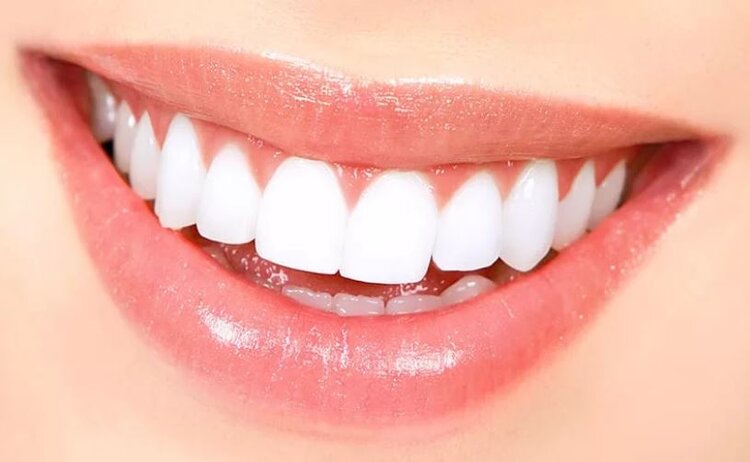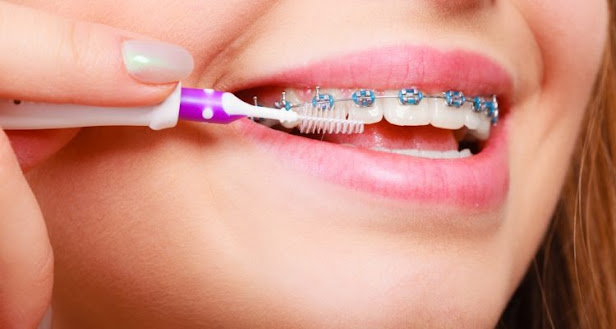Teeth Whitening: The Medical Facts
To look good nowadays everyone wants to have a good smile which can make him beautiful. However, some people are unable to achieve this due to the poor condition of their teeth. The same teeth stains, yellow marks and brown marks take away the shine of the teeth which ultimately makes the smile ugly. Feeling embarrassed while talking to someone. If you want to improve your smile with whiter teeth, teeth bleaching is an effective technique to achieve this.
What does teeth whitening mean?
Teeth whitening is a treatment method that involves
removing stains, yellow plaque, or any discoloration of the teeth from the
surface of the teeth, leaving behind traces of one's dark, yellow teeth.
Natural whitening is done to remove these marks which can make the teeth look
better aesthetically.
What are the reasons responsible for the discoloration of teeth?
There are many reasons responsible for the discoloration
of the teeth which spoils the smile.
Some of the important reasons responsible for the discoloration
of teeth are as follows:
1. Eating more sweets
When you eat, some amount of it gets deposited on the
teeth and gums. They invite a lot of bacteria into the teeth which eventually
leads to tooth decay.
2. Habit of chewing and smoking tobacco
The habit of chewing and smoking tobacco causes stains on
the teeth. They are mainly responsible for removing the enamel layer of the
teeth which paves the way for tooth decay. It also reduces blood flow due to
the weakening of the blood vessels in the tooth.
3. Aging
Aging weakens the enamel layer of the teeth and also
reduces the flow of blood through the blood vessels. This eventually causes
tooth decay which wears away the teeth.
4. Bad oral habits
Good oral hygiene habits are very important in
maintaining good oral health. If brushing, flossing, rinsing etc. is not done
properly then the color of the teeth gets spoiled.
These are some of the important reasons for the
discoloration of teeth. A proper treatment done early can help prevent further
discoloration of the tooth.
What are dentist treatments for teeth whitening?
Tooth bleaching is the most widely used method for
whitening teeth. Here, the cavity contents are cleaned out using dental
instruments, to ensure that the tartar is completely removed. After brushing
the teeth, activated carbamide peroxide gel is applied to make the teeth appear
whiter and brighter.
During the bleaching process, the enamel layer on the
surface of the teeth absorbs the carbamide peroxide. Here some chemical process
takes place to give white color to the teeth. The dentist will use the amount
of carbamide peroxide according to the condition of the teeth.
What are home-based teeth bleaching options?
Tray-based tooth bleaching techniques are used, whereas
peroxide-based bleaching gels are used to fill mouth guard trays.
Tooth whitening strips and gels are applied directly to
the teeth with the help of thin strips or a brush.
Using a teeth whitening toothpaste that contains some
notable amount of bleaching agent can remove stains to bring a white shine to
the teeth.
What are the fast teeth bleaching facts?
1. Small holes in the teeth
This is one of the important facts that are responsible
for tooth decay in spite of following proper oral hygiene. These cavities open
up to varying degrees and erode the teeth. Bleaching of teeth cleans it by
going into these holes.
2. Bleaching of teeth does not affect the health of teeth
There is a popular myth that teeth can be damaged due to
the chemicals used during the bleaching process. However, the fact is that the
chemical penetrates only to completely clean and whiten the pores.
3. The post-whitewash experience
It is true that after the teeth bleaching process the
teeth have a higher sensitivity than the natural sensitivity. However, given
the significant healing it is worth tolerating some sensitivity for a few days.
Tooth sensitivity usually persists for about 4 to 6 days after tooth bleaching.
4. Crown is not possible
Crowns cannot be whitened where the tooth is not present.
These crowns are generally resistant to the dyes used in the tooth-bleaching
process.
5. Withholding food for a few hours after the procedure
One should avoid eating anything for at least 4 hours
after the teeth bleaching is complete. This will help the teeth whitening
treatment to have the desired effect.




Comments
Post a Comment